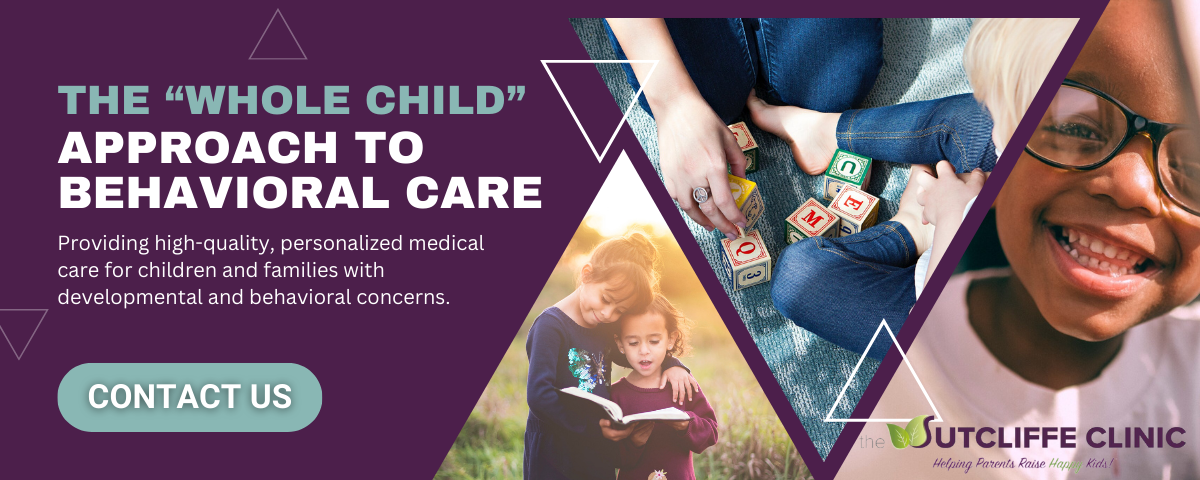Attention-Deficit/Hyperactivity Disorder (ADHD) is a neurodevelopmental condition that’s often identified in childhood and can extend into adulthood. It’s characterized by symptoms such as difficulty maintaining attention, hyperactivity, and impulsive behavior.
Treatments for ADHD can often involve stimulant medications as well as structured behavioral modifications.
Despite being common, ADHD is frequently surrounded by misconceptions and misunderstandings, especially regarding its impact on learning and education.
A common question we hear in discussions about ADHD is whether or not it qualifies as a learning disability. This question is particularly relevant for parents and educators who strive to provide the best support for children with ADHD.
Clarifying the distinction is essential, as it directly influences the approaches to supporting these children in their education.
With this in mind, we’ll explore the nature of ADHD and its relationship with learning processes. Additionally, we discuss how it differs from what are traditionally categorized as learning disabilities. Understanding these differences is crucial for providing appropriate care and educational support to children who exhibit symptoms of ADHD. We aim to empower parents and educators to effectively aid children with ADHD in achieving their full potential.
UNDERSTANDING ADHD
ADHD is more than just an occasional difficulty focusing or a burst of energetic behavior. It’s a chronic condition marked by regular inattention, hyperactivity, and impulsivity patterns.
These are more severe and frequent than typically seen in those at a similar level of development.
KEY CHARACTERISTICS OF ADHD
Now that we’ve established what ADHD is, we’ll take a closer look at the common signs.
These key characteristics are:
- Inattention: Children with ADHD can have difficulty maintaining attention, and seem not to be listening when spoken to. Additionally, they may struggle with following through on instructions and organizing tasks.
- Hyperactivity: This is often exhibited as constant movement, fidgeting, or an inability to stay seated. Children with ADHD often feel restless and find it difficult to engage in activities quietly.
- Impulsivity: Impulsive behaviors in children with ADHD may include interrupting conversations, acting without considering consequences, and difficulty waiting their turn. These impulses can lead to frustration for both the child and those around them.
While these characteristics can occasionally be found in all children, in those with ADHD, they are more intense and occur more frequently. When left untreated, they can have a significant impact on daily life, including difficulties related to learning.

ADHD AND LEARNING CHALLENGES
The characteristics we’ve discussed can present unique challenges in educational settings. These struggles can affect academic performance and social interactions with other students and faculty.
Some examples of how the characteristics of ADHD can impact educational life are:
- Difficulty with Focus and Concentration: As a result of their struggles with maintaining focus, children with ADHD are often easily distracted. External stimuli or their own thoughts can make concentration during lessons challenging.
- Organizational Challenges: ADHD-caused inattention can make it difficult to keep schoolwork organized. It may also affect the ability to keep track of assignments and deadlines or follow multi-step instructions.
- Impulsive Behavior in Classroom Settings: Impulsivity might lead to classroom disruptions and difficulty following rules. Additionally, it may contribute to social struggles.
- Hyperactivity and Restlessness: Traditional classroom environments usually involve remaining seated for extended periods. Hyperactivity and restlessness make this challenging. It can become a distraction for both the child and their peers.
Now we’ll explore how these characteristics affect specific areas of educational life:
- Reading Comprehension: Struggles with reading assignments and retaining the information.
- Mathematics: Issues with sustained attention along with remembering and completing multiple steps.
- Written Expression: Difficulty organizing thoughts and writing them down in a structured format.
- Social Interaction: Challenges in social interactions, emotional regulation, forming friendships and engaging in group activities.
Understanding these challenges is crucial to tailor educational approaches that accommodate the unique needs of each child. This is essential in helping them overcome obstacles to succeed both academically and socially.
ADHD VS. LEARNING DISABILITIES: CLARIFYING THE DIFFERENCE
Strong similarities are shared between the characteristics of ADHD and certain learning disabilities. Additionally, research has shown that a significant amount of children with ADHD also have a learning disability.
These factors make the question of whether ADHD is itself a learning disability more than understandable. However, while its impact on educational aspects of a child’s life can be significant, ADHD is not a learning disability.
A COMPARISON OF ADHD AND SPECIFIC LEARNING DISABILITIES
There are important distinctions between ADHD and learning disabilities that give them their own set of challenges and needs.
The main factors that differentiate them are:
- The Nature of the Conditions:
- ADHD is primarily a behavioral disorder. As we’ve discussed, it’s characterized by inattention, hyperactivity, and impulsivity. It affects a child’s ability to regulate their behavior and attention span.
- Learning Disabilities (LD), such as dyslexia, dyscalculia, and dysgraphia, are neurological disorders that specifically impact certain academic skills. They affect the brain’s ability to receive, process, or communicate information effectively.
- How They Impact Learning:
- Children with ADHD may struggle with focusing, following instructions, and staying organized. This indirectly affects their learning and academic performance.
- Children with learning disabilities face direct challenges in developing specific academic skills. For example, dyslexia affects reading and language processing, whereas dyscalculia impacts math skills.
THE IMPORTANCE OF ACCURATE DIAGNOSIS
To provide the right support, an accurate ADHD diagnosis is essential. Misdiagnosing ADHD as a learning disability, or vice versa, can lead to ineffective strategies that don’t address the actual needs.
As an example, a child with ADHD might be misdiagnosed as having dyslexia. They may be given reading interventions, when what they really need are strategies to improve focus and attention.
Whether it’s for a child with ADHD or a specific learning disability, a tailored plan and path forward is essential. This is why it’s critical to understand and be able to recognize the distinctions.
In both cases, early identification and intervention are key. Parents and educators who recognize these challenges can better advocate for and support the child. Taking the first step towards a diagnosis can lead to improved outcomes in both academic and personal development.

SUPPORTING CHILDREN WITH ADHD
Supporting children with ADHD in educational settings involves a multi-faceted approach. One that engages parents, educators, and healthcare professionals. The goal is creating an environment that accommodates their unique needs and fosters their academic and personal growth.
Effective support strategies include:
- Individualized Learning Plans: The importance of tailored learning experiences for children with ADHD cannot be overstated. It should always focus on their specific needs. This may include adjustments in teaching methods, seating arrangements, and more frequent breaks.
- Structured Environment: Consistency and structure help children with ADHD stay focused and organized. Clear rules, routines, and organized classrooms can make a significant difference.
- Visual Aids and Hands-On Activities: Traditional teaching methods aren’t always effective for children with ADHD. Engaging teaching tools like visual aids, interactive lessons, and hands-on activities may provide better results.
- Positive Reinforcement: Encouraging positive behavior with praise and rewards can motivate children with ADHD. Recognizing efforts and achievements, no matter how small, builds self-esteem and encourages continued progress.
Each caregiver contributes in their own way:
- Parents: Understanding and managing their child’s ADHD is the vital role that parents fill. Consistent home routines, clear expectations, and working closely with educators and healthcare professionals are all part of the Behavior Parent Training Program at The Sutcliffe Clinic.
- Educators: Educators’ essential responsibility is to adapt classroom settings and teaching strategies to better suit children with ADHD. Open communication and awareness of each child’s specific challenges and strengths are key.
- Healthcare Professionals: For healthcare professionals, their expertise managing ADHD symptoms, providing behavioral strategies, and supporting families is invaluable. Collaborating with schools and parents, they help to ensure each child receives comprehensive support.
By working together, parents, educators, and healthcare professionals create a supportive network, addressing the diverse needs of children with ADHD. This collaborative effort is crucial in helping these children navigate their educational journey successfully and confidently.
TAKEAWAYS
Both ADHD and learning disabilities can greatly impact the quality of a child’s academic life. Additionally, they share similar characteristics that are sometimes difficult to distinguish from one another. These similarities have led to confusion regarding the nature of ADHD and how it relates to learning disabilities.
Unlike neurological conditions, such as learning disabilities, ADHD is a behavioral disorder. This means that both its challenges and the effective methods of support are very different. These factors, along with the chance for co-occurring learning disabilities, make recognizing the distinctions and proper diagnosis essential.
Due to the nature of ADHD, individualized approaches tailored to the specific child are the most effective. They often require structured environments, engaging teaching methods, and positive reinforcement. Through collaboration, parents, educators, and healthcare professionals are fundamental in creating a nurturing environment for academic and personal growth.

WE’RE HERE TO HELP
The struggles related to behavioral disorders, learning differences, and learning disabilities can be challenging, particularly when left untreated. This is true not only for the child with the condition, but for their loved ones as well. For this reason, the benefits of early diagnosis and proper treatment extend beyond just the educational aspects.
At the Sutcliffe Clinic, our holistic approach provides the guidance and support necessary to help children and their families thrive. By providing psychological testing, educational support, and medical wellness, our team focuses on the whole child. Additionally, we offer parent coaching and counseling to create a comprehensive treatment plan for the entire family.
If you’re concerned a child in your life is facing learning challenges or developmental concerns, contact us.
Together, we’ll develop a strategy for your child to help them reach their full potential.
